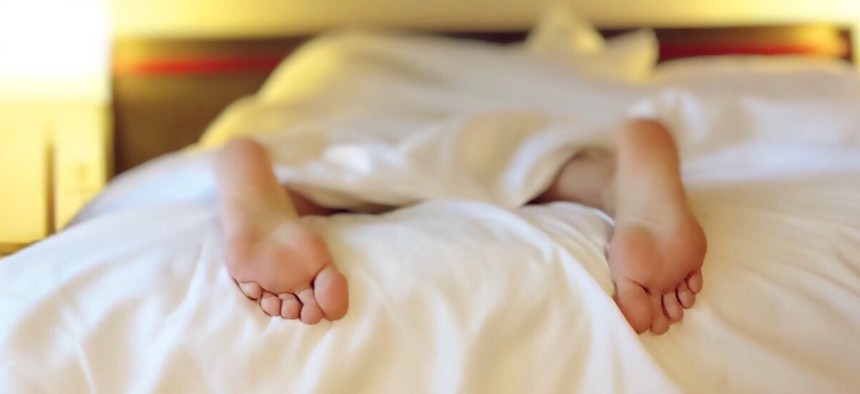
Pexels.com
Beat Insomnia and Boost Your Productivity With This 5-Minute Ritual
Offload your worries, suggests a new study from Baylor University.
We have a conflicted relationship with to-do lists. Though inanimate, they nonetheless come to life as micro-managers in some part of the mind, and living by them can feel like training your brain to think small (and dull) instead of expansively—to remember your grocery list instead of that lovely opening line from the novel you’re reading. But, psychologists say, the to-do list can allow you to offload your worries, too.
That theory, and how it might help someone ease into sleep, was tested in a new study from researchers at Baylor University. Fifty-seven students were randomly assigned to write a to-do list looking ahead at the next few days of their week, or write a completed task list chronicling the last few days, which sounds like an especially boring form of keeping a diary. Those in the first group fell asleep significantly faster than those in the second, according to the study, which was just published in the Journal of Experimental Psychology.
Importantly, the results also suggested that if you move your to-do list writing ritual to the late evening, you should get into the weeds with it, too: In the experiment, the more specific the students were in their checklists, the faster they fell asleep. Writing out the list of chores essentially transfers them from our minds—where they exist in a state of uneasy impermanence—to a tangible and retrievable form. Once they’re offloaded, it seems, we can relax.
“We live in a 24/7 culture in which our to-do lists seem to be constantly growing and causing us to worry about unfinished tasks at bedtime,” said lead author Michael Scullin, a professor of psychology and neuroscience, and director of Baylor’s sleep lab, in a news release. “Most people just cycle through their to-do lists in their heads, and so we wanted to explore whether the act of writing them down could counteract nighttime difficulties with falling asleep.”
Without sleep, research shows, you go to work in various degrees of fogginess: Your productivity dips, your ability to stay focused and think creatively is demonstrably weakened, and your reduced alertness may create hazards for others at your workplace (if you work in a hospital, for instance.) Any quick hack that might put you to sleep faster, and is obviously not harmful, is worth testing at home.
When you’ve finished ruminating over the call to your accountant you have to make, or that colleague you need to ping before the morning standup, you might be able to let your mind wander, and enter into that groggy state where images and associations begin to feel random and surreal, a state that seems to be a precursor to actual dreaming. If that’s where you get stuck next, however, there’s a trick (and an app) for that, too.






